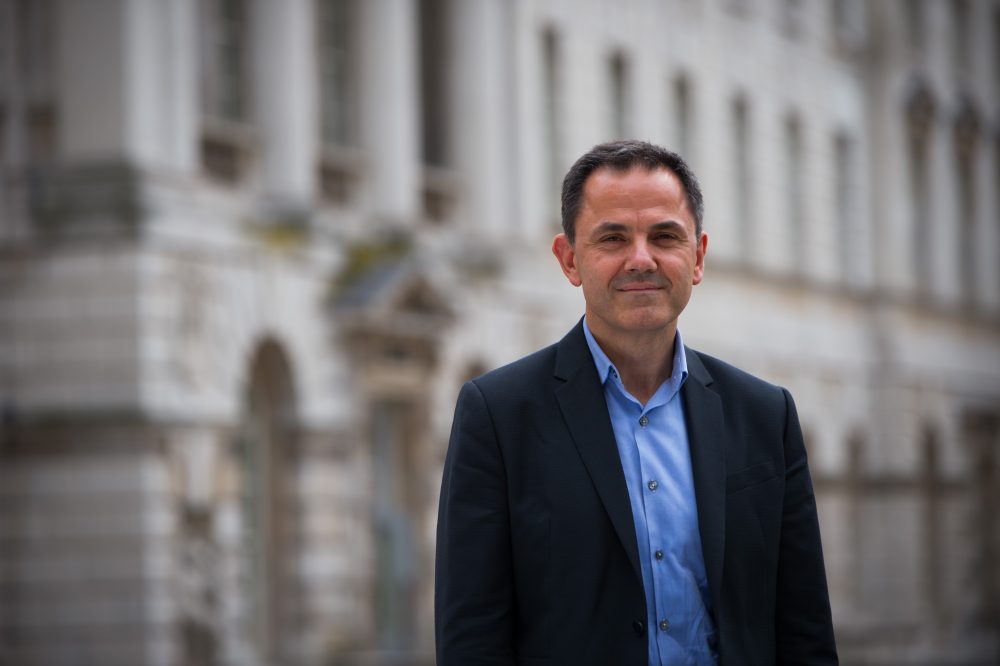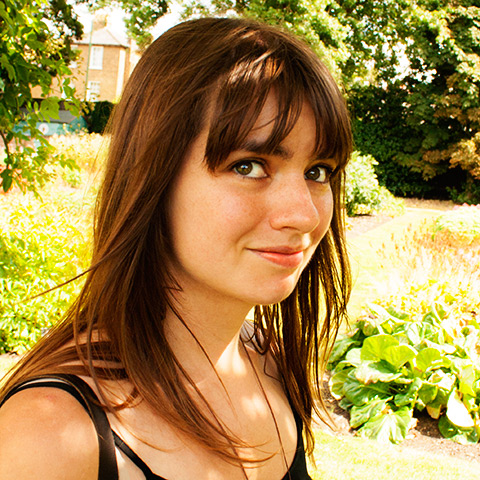Moral and legal philosopher John Tasioulas has spent years asking what human rights are and where they come from. It’s a subject, he says, that benefits from everyone getting involved.
“One of the most encouraging developments in philosophy is that it’s becoming increasingly respectable for serious philosophers to try to engage with a public audience,” he tells me. “I think it’s changing the conversation. It means that you’re having to take on board a broader array of perspectives…”
Broadening the conversation about law and philosophy is clearly a project close to his heart. John has spent decades exploring international law, crime and punishment, and human rights. He’s the Director of the Yeoh Tiong Lay Centre for Politics, Philosophy and Law at King’s College London and has recently worked with the World Bank on minimum core obligations in human rights.
He’s also the child of Greek immigrants to Australia and the first person in his family to go to secondary school. He tells me about how his background influenced him, the hard lessons he’s learned about human rights, and why philosophy should matter for everyone.
What did you want to be when you were a child?
My earliest memory was that I wanted to be a fireman. But then eventually the idea of a lawyer came into play.
I had this interest in arguing about right and wrong and so law became a kind of focal point for that. Then much later I discovered philosophy, which also was focused on arguing about right and wrong, but without that same deference to human authority that necessarily comes from law. The wonderful thing about philosophy was you just appealed to natural reason common to all human beings.
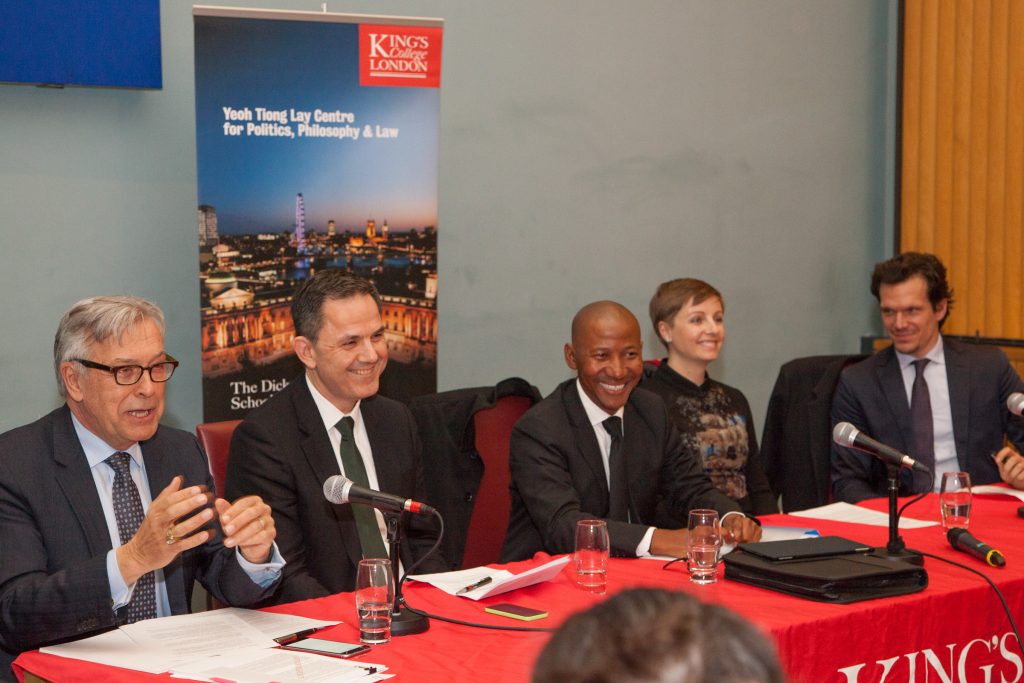
Image Credit: Dominic Turner / Kings College London
How did your education shape you?
Profoundly. I was lucky to benefit from a tradition at Melbourne University of people doing combined degrees. Mine was law with a very heavy emphasis on philosophy. It led me to think, how could I fuse these two things together?
I was interested in the question which was very central to international law: given different cultural perspectives are we simply left with a relativistic position that people argue from irreconcilable premises? Or is there really some way in which we can aspire to principles that are universally true?
You can see that quite abstract discussion leads fairly easily into thoughts about human rights. Whether they truly have a kind of universal authority or whether they’re just an imposition of one set of cultural standards on other cultures.
What’s the most important lesson that your parents taught you?
I would have to say it was two lessons. One is what it means to be loved. And the second thing, especially from my father, was this strong sense of justice. That life isn’t simply about pursuing your self-interest in some narrow sense, but also about recognising the claims of others.
In fact, both of those things, love and justice, are about recognising the deep sense of reality that other people have. It’s not simply a solipsistic world where your projects and your desires have authority over everything.
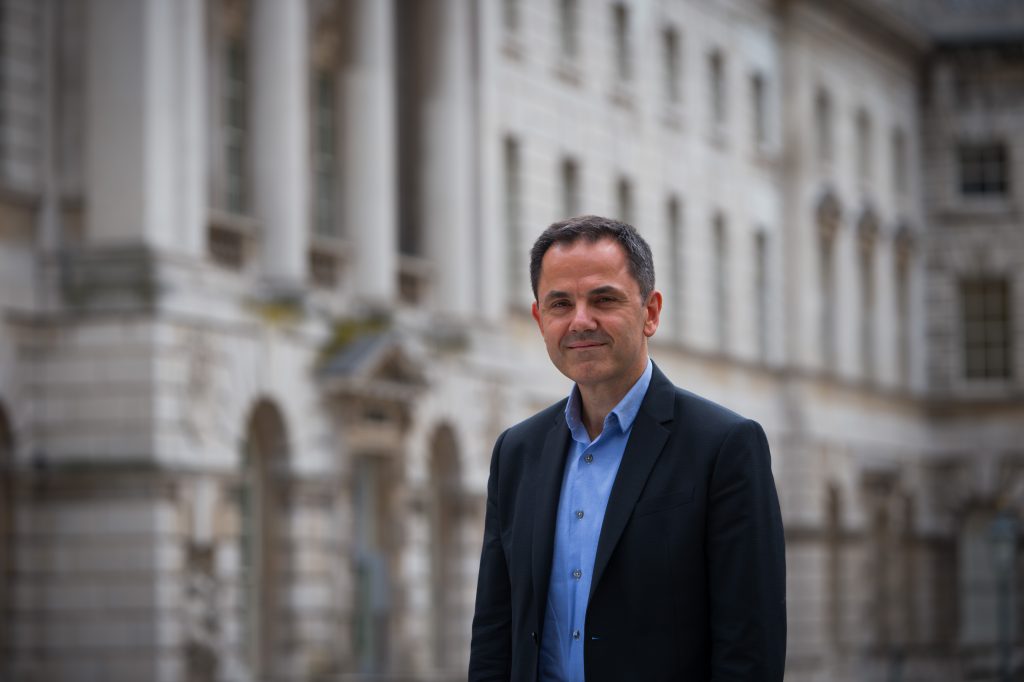
Image Credit: Dominic Turner / Kings College London
Nature or nurture?
It’s a hard one. I think, based on my own limited experience, that nature sets pretty hefty parameters, but within those parameters there’s a lot of leeway, both for good and for ill, and that’s what nurture provides.
What’s your best memory?
I think my best memory is probably seeing my father’s tears of joy when I got the Rhodes Scholarship. Because he never had any of the opportunities that I did. He was born in Greece and he didn’t have the opportunity to get beyond primary school. He had to live through war, famine, civil war and then the political repression that took place after the civil war where people of a left-wing orientation were excluded from society in many ways.
My father made tremendous sacrifices for his family and so I felt that through achieving this, it was some way of recognising him and his sacrifices.
What does freedom mean to you?
It means many things, but one thing that it means to me is having the opportunity to use your own reasoning to try and identify what a valuable path in life is and to pursue that path without other people unduly interfering with you.
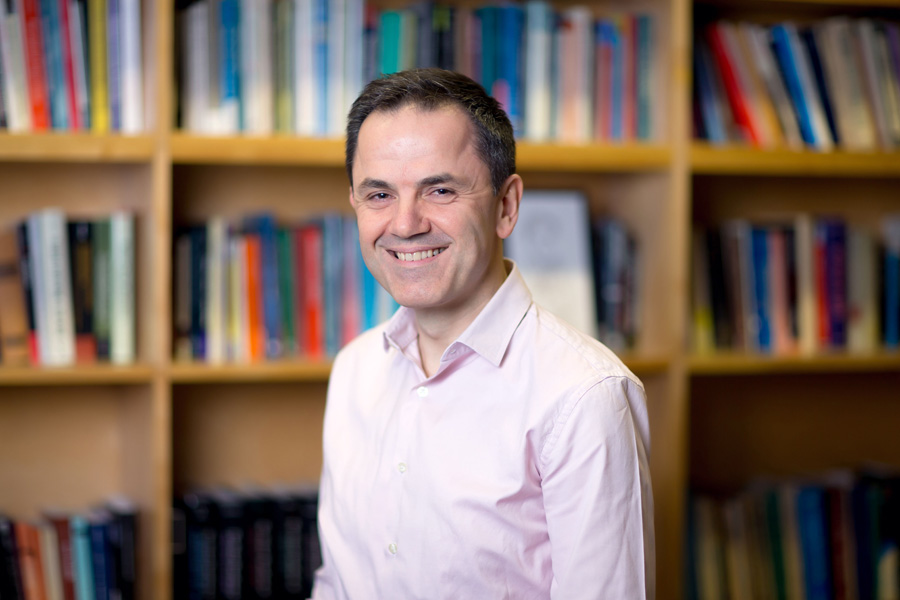
Image Credit: Douglas Fry
What human right do you value the most?
Oh, that’s almost impossible to answer. What I would say is that often people denigrate human rights [because] they think people are passively there saying, ‘well I want to receive a lot of benefits from others.’ That is an incredibly distorted image of human rights. Partially, because if you’re really talking about human rights you’re talking about obligations. People have rights but also they have to take steps to make sure that these rights are fulfilled.
But another reason why it’s an unfair picture to think of human rights as essentially passive is that many human rights are entitlements to engage in some form of activity. I’ve become increasingly interested in participatory rights, the right to democratic participation and the right to be able to participate in the formation and direction of one’s culture. We’re claiming human rights because we want to engage but also because that kind of engagement is pretty crucial for safeguarding other rights.
What’s a lesson that you’ve learned about human rights the hard way?
Okay, so I think it’s very complacent to assume that, because people talk a lot about human rights, they’re really committed to human rights. The lesson I’ve learned the hard way is the overwhelming and the depressing degree to which human rights talk becomes another form of the PR industry.
What would save from your house in a fire?
Any other living being that was there!
Do you ever stop and check your privilege?
Absolutely. The person that I most admired was someone who didn’t hold an impressive job or even go to secondary school. I think people in my position can often believe that they have their privileges and their status because of purely meritocratic reasons.
My history powerfully instructs me that that is not the case. That there is no level playing field, that the reason why people have privileged positions is often down to luck and also because others are unfairly excluded from being able to compete.
Can you tell me something that surprises people about you?
I won’t say my fondness for the early work of The Sugababes. What I guess would be surprising is that someone who’s a professor of law can actually say that they’re the first person in their family to go to secondary school. I think there aren’t many people who could say that.
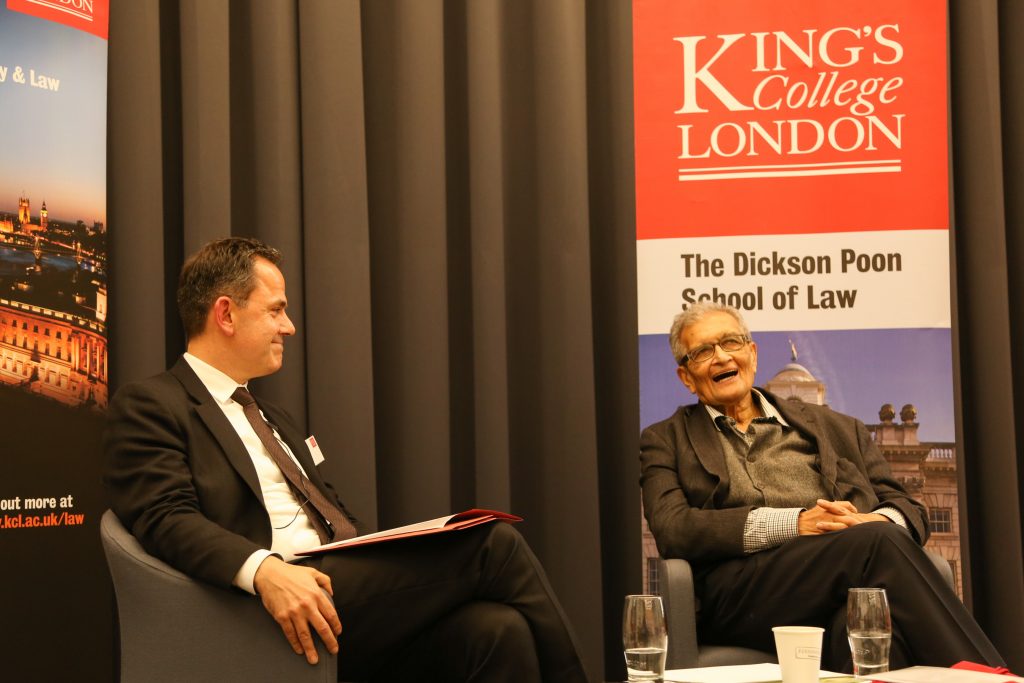
Image Credit: Dominic Turner / Kings College London
Can you tell me what ambition means to you?
That’s a hard question for a philosopher… We’re in this discipline where some of the greatest thinkers have grappled with some of the most difficult questions there are. The answer is not going to be that I’m hoping anytime soon to solve these big questions.
I think my ambition is two things. One is to keep a certain conversation [alive] that is very important: what are the basic values that should guide us, what is justice, how do we understand rights, what’s wrong with inequality? The second thing is, that we should approach this conversation in the spirit that we actually can reason about these topics. We may respectfully disagree but we’re actually engaging in a process of reason.
I think that is the great gift that philosophy gives to the world. That it says you can use your fallible human reason to try to address these questions and, in so doing, you’re paying a certain kind of respect to other people.
What does dignity in dying mean to you?
I would say there are two things. One is how others around that dying person are treating that dying person. I think dignity there means that you’re not doing anything to humiliate that person. And then the question is what’s the dignity that the person dying can display? That’s a much more difficult achievement, but I think it must be something like being able to look death in the face calmly in light of the knowledge of the life you’ve already lead.
Believer, atheist, or agnostic?
I’ve pretty much always been an agnostic. I’ve never been able to get past the argument from evil, for the existence of God. I don’t think it conclusively disproves that God exists, but for me, that’s a major barrier for believing in anything like an all good personal God.
But on the other hand, I’m impressed by people who say they’ve had very powerful religious experiences that reveal to them the existence of such a being. I can’t claim to be able to refute them, hence the agnosticism.
And what’s the meaning of life?
Well, that’s the easiest one of all! I think the meaning of life is all about a kind of struggle we should all be engaged in to get our attitudes, our actions, our lives into line with what’s genuinely good, what’s true, what’s beautiful.

